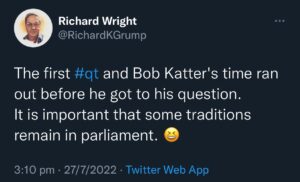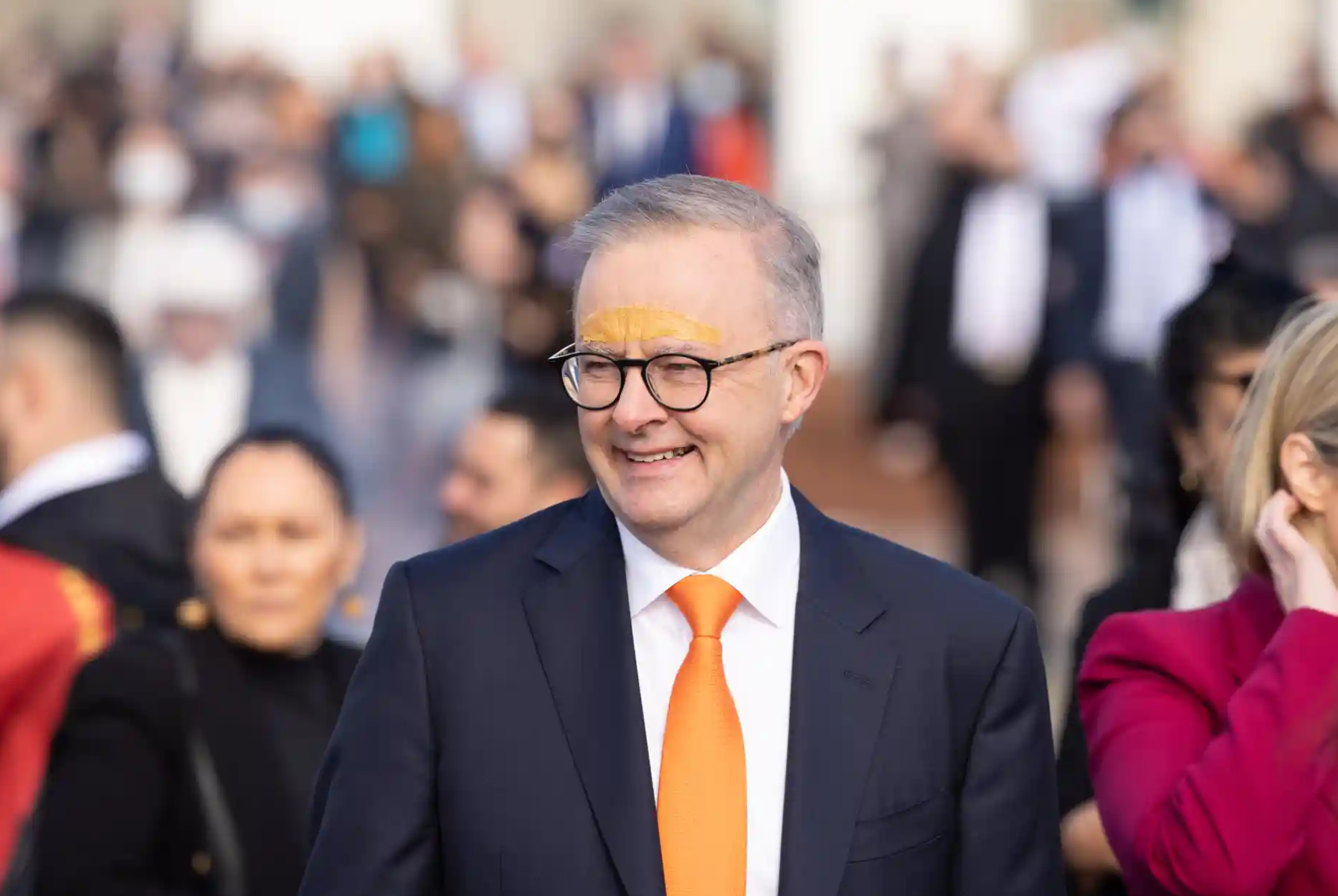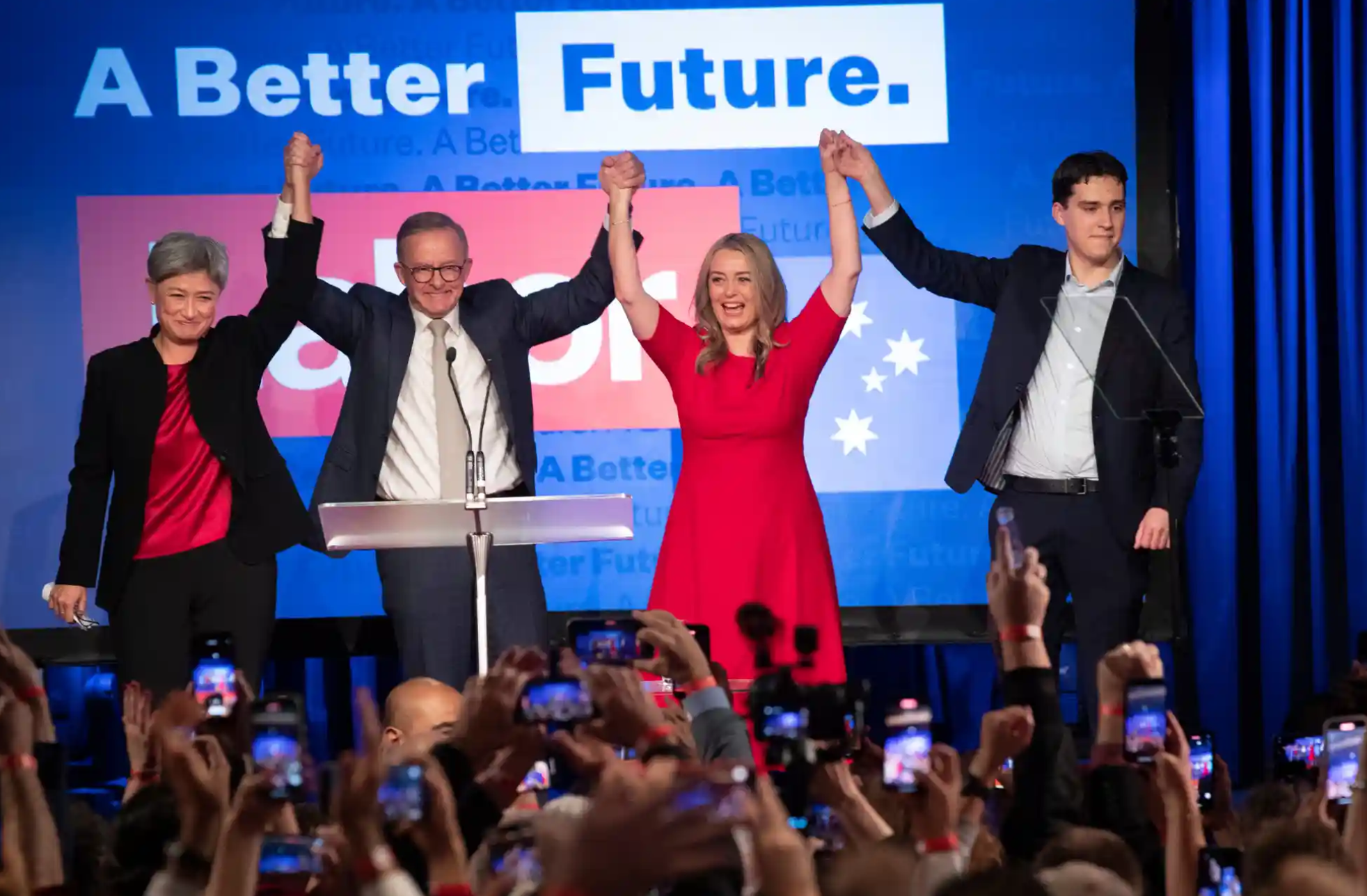Welcome Back Parliament
A change of government is rare in Australian federal politics, only having happened eight times since the end of WWII. After nine years of Coalition leadership, the federal Australian Labor Party has taken the reins of government and the new parliament with an organised and strong start to its legislative agenda.
The first week of parliament commenced with important ceremonial proceedings before the new government moved ahead with the introduction of legislation.
The 47th Parliament first sitting days started with many Senators and Members attending an early morning traditional church service in Canberra before returning to Parliament House for a Welcome to Country and smoking ceremony on the forecourt.
Then to the two Chambers, where Milton Dick MP was elected as Speaker of the House, with Senator Sue Lines elected as President of the Senate along party lines. This was followed by Members and Senators bring were sworn in, 47 for the first time as part of the class of 2022.
Governing at a quick pace the Prime Minister for Australia, The Hon Anthony Albanese MP, has already travelled to meet with foreign leaders, attend international summits and conferences, and introduced a number of key bills to parliament.
Prime Minister Albanese is serving his electorate for the 10th time, bringing his considerable experience and commitment to his new role.
Born to a single mum, in council housing in Sydney’s inner west Prime Minister Albanese was the first person in his family to finish school, let alone university. First elected in his seat of Grayndler in 1996 he continued on to become the Deputy Prime Minister in 2013. In 2019, he was unanimously elected as Leader of the Australian Labor Party.
Summary of the First Day of the 47th Parliament
Pomp & Ceremony
Beginning his first week back in parliament as Australia’s 31st Prime Minister, Prime Minister Albanese hosted the ALP families at the Lodge on the Sunday afternoon before parliament was due to sit. On Monday the Prime Minister addressed the ALP caucus meeting and attended the Last-Post ceremony at the Australian War Memorial. Beginning the first sitting day alongside many of his fellow parliamentarians the Prime Minister attended a traditional early morning church service. Instating a spirit of bipartisanship, the Prime Minister and Opposition Leader were seen shaking hands at this event.
Following the church service, Ngambri-Ngunnawal custodian Paul House, conducted a well-attended Welcome to Country in the Great Hall of Parliament House.
Mr House stated the 47th parliament would be profoundly important for First Nations people and the country. He commented that First Nations people trust this parliament to act responsibly in embracing all three key elements of the Uluru Statement from the Heart.
A new Speaker of the House of Representatives and President of the Senate were elected, roles that were filled by Milton Dick MP and Senator Sue Lines respectfully.
The Governor-Generals’ Speech
The Governor-General attended parliament, with a royal salute upon his arrival before giving his speech to the combined chambers outlining the new government’s agenda.
Opening his speech with an Acknowledgment of Country, the Governor-General set the tone for the new government’s commitment to enshrining an Indigenous voice in Parliament, enforcing the Uluru Statement, and re-investing in Indigenous communities to end the cycle of injustice, incarceration, and closing the gap.
The Governor-General further outlined key focus areas for the new government including:
- Managing the cost of living
- Supporting low wages growth
- Stronger action on climate change
- Addressing the tensions in the Pacific region
- Relieving pressure in Health and Aged Care sectors
- Providing cheaper energy and new skills for the economy; and,
- Reducing costs of childcare
The Parliament officially opened at the conclusion of the Governor-General’s speech with a 19-gun artillery salute outside Parliament House
Announced Legislation
Additionally, during the first sitting week, the Government announced their intentions to introduce at least 18 pieces of legislation. These included significant pieces of legislation focused on the Government’s election commitments for aged care reform and emission reduction targets.
The Climate Bill was among the first and most contentious of these 18 bills, with the Coalition announcing opposition to the proposals.
The announced legislation includes:
- Climate Change Bill 2022 – from Minister for Climate Change and Energy Chris Bowen MP
- Jobs and Skills Australia Bill 2022 – from Minister for Skills and Training Brendan O’Connor MP
- Australian Human Rights Commission Legislation Amendment (Selection and Appointment) Bill 2022 – from Attorney-General Mark Dreyfus MP
- Treasury Laws Amendment (2022 Measures No.1) Bill 2022 – from Assistant Treasurer Stephen Jones MP
- Military Rehabilitation and Compensation and Other Legislation Amendment (Incapacity Payments) Bill 2022 – from Minister for Defence Personnel Matt Keogh MP
- Social Services and Other Legislation Amendment (Lifting the Income Limit for the Commonwealth Seniors Health Card) Bill 2022 – from Minister for Social Services Amanda Rishworth MP
- Social Security (Administration) Amendment (Repeal of Cashless Debit Card and Other Measures) Bill 2022 – from Minister for Social Services Amanda Rishworth MP
- Aged Care Amendment (Implementing Care Reform) Bill 2022 – from Minister for Aged Care Anika Wells MP
- Treasury Laws Amendment (Electric Car Discount) Bill 2022 – from Treasurer Jim Chalmers MP
So how many questions are people getting in Question Time?
The make-up of the 47th parliament is very different from recent years. There is a significant shift in dynamics coming from the enlarged crossbench, particularly in the House of Representatives.
Rising from just seven crossbenchers in the last parliament to the current 16, the expanded crossbench will be heard much more than in previous years.
Prime Minister Albanese has outlined his intent to do question time differently. Questions are now limited to 30 seconds, although crossbenchers are allowed 45 seconds.
Further changes include the number of questions available to the crossbenchers. The crossbench is now receiving the opportunity to ask three questions of the Government each question time, rather than the one question allocated under the former government.
The new parliament is truly underway, with big changes to the structure and the first transition of power in almost a decade. This term of parliament is likely to yield interesting legislative debates and outcomes.
And hopefully, in the spirit of the Government’s stated intentions of unity and togetherness will continue though out the 47th Parliament.
In Case You Missed It & Tweet of the Week

Latest posts by Lucy Jamieson Beath (see all)
- Opposition Leader Peter Dutton’s Budget in Reply - October 27, 2022
- Solid, Sensible and Suitable for the times – ‘Building a Better Future’ Budget - October 25, 2022
- Welcome Back Parliament - July 29, 2022



